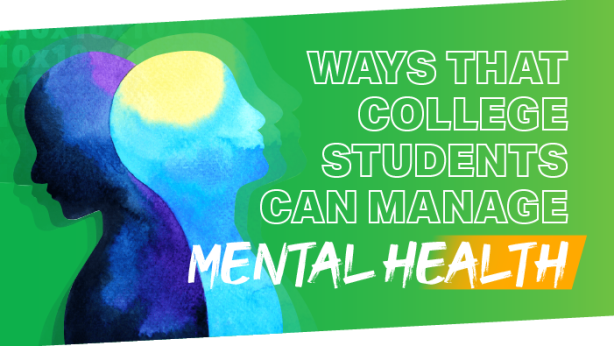This Mental Health Awareness Month, Remember to Listen

By: Kelli Hobson, Vice President of Programs & Evaluation
May is Mental Health Awareness Month, a time to raise awareness of mental health issues and the harmful stigmas that surround them. As I reflect on what this month means to me — as a Black woman and a vice president of an organization dedicated to advancing the future of Black youth in Chicago — I think of the unique set of challenges that Black Americans face surrounding mental health.
According to Mental Health America (MHA), historic violence, generational trauma, and present-day systemic oppression make Black Americans more likely than their white peers to experience persistent, rather than episodic, mental health conditions. It is also known that poor mental health, if left untreated, can affect our physical health and lead to chronic issues like heart disease, hypertension, and a weakened immune system.
Taking it a step further, different demographics within the Black community each face their own set of obstacles when it comes to mental health. Black women carry a heavy load on their shoulders, but the “strong Black woman” role many of us feel called to constantly embody and maintain makes it hard to ask for the help we need. Black men face additional stigma when it comes to expressing their emotions, which also holds them back from seeking help.
Through my work with LINK Unlimited Scholars, I see firsthand how the experience of being a Black student in a broken educational system takes a toll on each and every one of our Scholars. For example, College Decision Day, which takes place annually on the first of May, is meant to be a celebration of high school seniors taking the next step in their education. But for Black students who constantly feel as though they need to prove their worth, it can prompt a damaging cycle of comparison and twinges of self-doubt that negatively impact their mental wellness.
I strongly believe that one of the most important roles in my work with LINK Scholars is, simply, to listen. Through both surveys and informal conversations, our Scholars have revealed that, even in the midst of one of the most precarious times for teens and mental health, they felt a lack of compassion, empathy, and understanding from school educators and administrators throughout the pandemic.
The opportunity to be more forgiving and to allow students breathing room to process what was happening around them was completely missed by schools that took a “business as usual” approach. Busy work increased, the number of graded assignments increased, and stress, anxiety, and loneliness followed suit.
Black youth need an outlet to express what they’re going through, and I am glad LINK can be that outlet for our Scholars. After listening to what Scholars had to say about their mental health and developing a genuine understanding of what they needed in order to be their best selves, LINK added a Meditation and Wellness class to our summer learning offerings to give our Scholars concrete techniques for navigating an uncertain world. If we are going to ask students to perform their best, then we have the responsibility of making sure they are in a position to be their best.
All of this starts with paying attention to, and giving credence to, concerns voiced to us by young people. Too often, young people communicating their mental health struggles to adults are met with either 1) an explanation of the adult’s own grit that led them to overcoming obstacles or 2) complete dismissal. Sadly, these responses only serve to shut down the very conversations needed to find greater stability. When young people come to us, they need to know their struggles in this unusual historical moment have been heard and affirmed. We may have our own successes, but none of them were won during a global pandemic. What we share, and how we share it, has the power to be either salt or a balm for their wounds, so we must choose our words wisely. Holding space for young people to share is the most helpful thing we can offer.
Looking to the future, as our class of 2021 heads off to college, and our younger Scholars continue moving forward after a highly disrupted past 14 months of schooling, we need to prioritize their voices in conversations around mental health. How we respond to a student voicing a mental health concern — whether personal or for a peer — will either encourage or discourage that student from reaching out for help again in the future. It is essential that we take a pause, and listen carefully.
Listening is not a revolutionary idea, but it has a revolutionary impact. This Mental Health Awareness Month, let’s all do a little more of it. If we do, we can respond to students’ needs, improve the mental health awareness and resilience of the next generation of Black Americans, and break cycles of stigma that continue to harm us and our communities.


